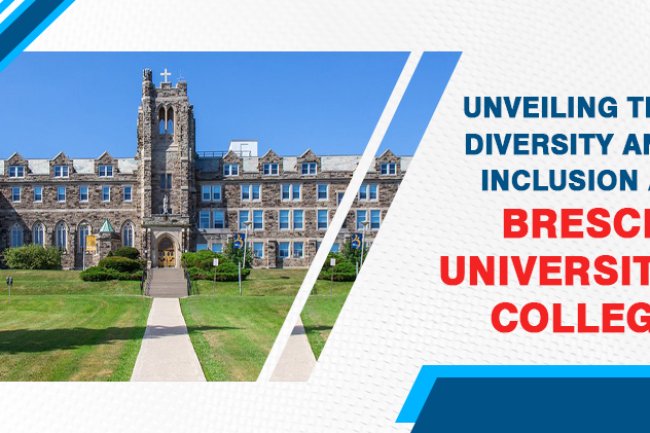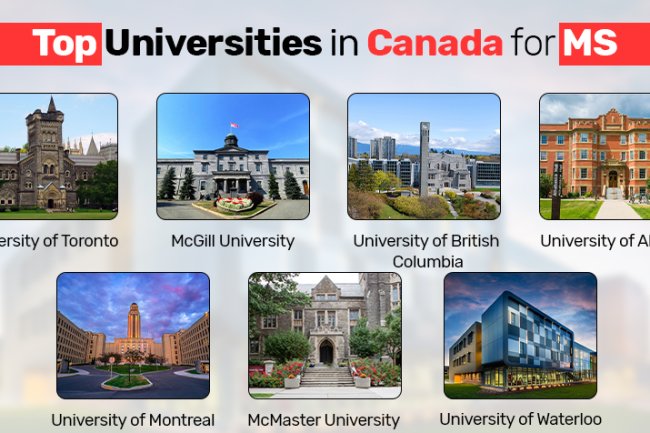What Are The Scope Of Diploma Courses After 12th In Canada
Diploma courses in Canada after 12th offer a wide range of opportunities for students who want to gain practical skills and enter the workforce quickly. These diploma programs are typically offered by colleges and technical institutes and focus on specific career fields.

Students who want to continue specialised training in a variety of professions have a wide selection of possibilities for diploma courses in Canada following the 12th grade. These courses frequently have a practical emphasis and are created to give students the specialised information and skills needed for employment in particular industries. The following is the list of common fields and their program:
Business Administration: Business fundamentals, management, marketing, accounting, and entrepreneurship are all covered in-depth in diploma programmes in business administration. Graduates can find work in a number of fields, including marketing, finance, retail, and hospitality.
Information technology: Topics including software development, computer programming, network administration, cybersecurity, and database management are covered in diploma courses in IT. Graduates can find employment prospects in software firms, IT departments of organisations, or as independent contractors due to Canada's high need for IT specialists.
Hospitality And Tourism: Diploma programmes in these fields prepare students for work in the hospitality sector, which includes resorts, hotels, event management companies, and travel agencies. Graduates with experience in customer service, event organising, or hotel management have a wealth of job prospects in Canada's booming tourist industry.
Engineering Technology: Diploma programmes in engineering technology concentrate on engineering's practical applications, such as computer, civil, mechanical, and electrical engineering technology. Graduates can find employment as engineering technologists or technicians, assisting engineers in a variety of sectors including manufacturing, construction, and telecommunications.
Healthcare: Diploma programmes offer specialised training for in-demand healthcare vocations like nursing, medical laboratory technology, dental hygiene, and pharmacy technician. These programmes are appealing to students interested in the medical area due to Canada's increasing need for healthcare personnel.
Media & Communications: Diploma programmes in this field cover topics including graphic design, public relations, advertising, journalism, and broadcasting. Graduates can pursue freelancing in the creative sectors or find employment in media companies, ad agency, or public relations firms.
Culinary Arts: Diploma programmes in culinary arts provide a strong emphasis on acquiring the culinary expertise and skills necessary for employment in the food and hospitality sectors. Graduates have the option of pursuing jobs as chefs, culinary managers, or as business owners in the food industry.
Reasons to Study in Canada after the 12th
Taking diploma courses in Canada beyond the 12th grade can provide students with a number of advantages and prospects. Consider these factors while deciding whether to enrol in a diploma programme in Canada:
Practical and Job-Oriented Education: Diploma programmes in Canada frequently emphasise learning the specialised skills needed by the industry through hands-on training. These courses provide a strong emphasis on practical application and get students ready for the workforce right away. The practical focus of the curriculum may improve employment opportunities.
Shorter Duration: In comparison to undergraduate degree programmes, diploma programmes often have a shorter duration. The majority of diploma programmes in Canada can be finished in 1-3 years, enabling students to start working sooner. For people who want to begin their jobs earlier or prefer a learning environment that moves more quickly, this may be advantageous.
Economical Choice: Tuition costs for diploma programmes are frequently lower than those for full-fledged undergraduate degree programmes. This can lower the cost of doing a diploma programme in Canada, especially for foreign students. They are able to acquire important skills and certificates for a comparatively modest price.
Pathway to Further Education: In Canada, there are many certificate programmes that offer routes to higher education. Some diplomas can be used as a stepping stone to pursue more advanced degrees or postgraduate courses of study. Students have the option of continuing their education and building on the base they have laid with their diploma.
Co-op and Work Placement Opportunities: Co-operative education or work placement opportunities are frequently included in the curriculum of Canadian diploma programmes. This gives students the chance to get real-world work experience related to their studies, network with professionals in related fields, and improve their employability. Work experience can provide offer insightful knowledge of the Canadian labour market.
Access to Immigration Opportunities: Enrolling in a diploma programme in Canada can give foreign students the chance to get Canadian job experience and research immigration options. Some diploma holders might qualify for post-graduation work permits, which let them work in Canada for a specific amount of time after finishing their education, depending on the conditions.
Multicultural and Supportive Environment: The multicultural society and inviting atmosphere of Canada are well-known. Studying in Canada exposes students to a variety of cultures, viewpoints, and experiences. International students are frequently given support services by Canadian academic institutions to aid in their adjustment to the country and academic success.
Requirements to Study in Canada
Depending on the school and programme you choose, there may be different criteria for taking diploma courses in Canada after you complete your 12th grade education. However, the following are some typical expectations for generic requirements:
Academic Requirements: In most educational systems, you must have completed high school or its equivalent, which is the 12th grade. You can be asked to present documentation of secondary education completion, such as a transcript or high school diploma.
English Language skills: Since the majority of diploma programmes in Canada are taught in English, you will typically need to present evidence of your language skills. IELTS (International English Language Testing System) and TOEFL (Test of English as a Foreign Language) are two commonly used assessments of English language competence. Check the exact language criteria of the institution you are applying to because the minimum required scores can differ.
Minimum Grade Requirements: Specific grade requirements in courses like English, math, or science may apply to some diploma programmes. It's crucial to check the program's entrance standards to make sure you match the minimal grade requirements.
Application Form: The institution you desire to apply to will issue an application form that you must fill out. Personal details, educational background, and inquiries pertaining to the programme are often included.
Application fee: You must pay an application fee, which is a non-refundable sum, when submitting your application to many universities. Check the exact requirements of the university you are applying to because application fees differ between colleges.
Supporting Documents: You'll probably be required to provide supporting materials with your application. These records could consist of:
- Transcripts: Your high school or secondary school mark sheets or official transcripts.
- English Language Proficiency Test Results: Verified results of exams like the TOEFL or IELTS.
- Letter of Intent: A statement outlining your interest in the programme, professional aspirations, and selection criteria for the particular school.
- Letters of recommendation: These documents, which are frequently written by instructors or other experts, attest to your academic prowess, moral character, and likelihood of succeeding in the programme.
- Resume/CV: A synopsis of your educational background, accomplishments, employment history (if any), and any pertinent credentials.
Diploma & Certificate Courses In Canada After 12th
For students who have finished high school in Canada, there are numerous diploma and certificate programmes available. These programmes offer specialised instruction in a range of subjects and are intended to get students ready for particular occupations or lay the groundwork for further education. Following the 12th, the following popular diploma and certificate programmes are offered in Canada:
Diploma in Business Administration: The topics covered in this programme include marketing, finance, human resources, and entrepreneurship. It gives students the tools they need to launch their own enterprises or work in entry-level managerial roles.
Diploma in Information Technology: This programme focuses on network administration, cybersecurity, database management, computer programming, and software development. Graduates can work in IT departments of companies or pursue professions as software developers, IT technicians, or network administrators.
Diploma in Hospitality Management: This programme offers instruction in tourism, event planning, hotel and restaurant management, and customer service. Graduates can create their own hospitality businesses or work in hotels, resorts, restaurants, or event management firms.
Diploma in Graphic Design: This programme emphasises the development of abilities in typography, branding, graphic design software, and visual communication. Graduates can find employment as graphic or web designers, advertising specialists, or freelance jobs.
Diploma in Early Childhood Education: Students who complete this programme are ready to work in kindergarten classrooms, preschools, and other early childhood education facilities. It addresses issues including curriculum design and efficient teaching techniques.
Certificate in Nursing Assistant: For those looking for entry-level jobs in the healthcare industry, this programme offers fundamental training. Patient care, medical jargon, infection control, and ethical issues are all covered. Graduates can find employment as nursing assistants in healthcare settings like hospitals, nursing homes, and long-term care facilities.
Culinary Arts Certificate: This programme focuses on acquiring the culinary expertise and abilities necessary for professions in the food and hospitality industries. It addresses kitchen management, menu planning, food safety, and cooking methods. Graduates can create their own catering companies, work as chefs, or as line cooks.
Colleges in Canada to study diploma
For students who have finished their 12th grade, many colleges in Canada offer diploma programmes. Here are some renowned Canadian universities where you can enrol in diploma programmes:
Nipissing University: This institution specialises in awarding degrees. A few post-degree diploma programmes, such the Post-Baccalaureate Diploma in Business Administration, are nevertheless available.
Selkirk institution: Located in British Columbia, Selkirk College is a community institution that provides numerous diploma and certificate programmes in fields like business, health sciences, trades, and technology.
Northern Lights College: The college offers diploma and certificate programmes in trades, technology, business, and health care. They have campuses in British Columbia's northern region.
Parkland College: The college offers diploma and certificate programmes in trades, technology, business and the medical field, among other subjects. It can be found in Saskatchewan.
Lakeland College: This institution provides diploma and certificate programmes in a variety of subject areas, including business, agriculture, environmental sciences, health care, and trades. In Alberta, they have campuses.
Lester B. Pearson, no. 6 University of the World: Lester B. Pearson International boarding school United World College provides students ages 16 to 19 the International Baccalaureate (IB) Diploma Programme.
Coast Mountain College: Coast Mountain College provides certificate and diploma programmes in industries like business, healthcare, trades, and social services. British Columbia is where it is situated.
Canadian College: This institution provides diploma and certificate programmes in subjects like business, hospitality, and international trade.
Best Cities to Study in Canada After 12th
For students pursuing diploma courses after the 12th grade, Canada is home to various locations that provide good educational possibilities and a high level of living. Some of the top Canadian cities to think about for study abroad include:
Toronto, Ontario: Toronto is the largest city in Canada and a significant centre for education. It is renowned for its cosmopolitan setting and energetic city life and provides a wide variety of diploma programmes in numerous subjects.
Vancouver, British Columbia: Popular with international students, Vancouver is renowned for its breathtaking natural beauty. It has prestigious institutions and colleges with diploma programmes in subjects including business, technology, and the arts.
Montreal, Quebec: Montreal has a great academic reputation and is a thriving and culturally diverse city. There are numerous educational institutions in this multilingual metropolis that provide diploma programmes in both English and French. The programmes in engineering, design, and the arts are particularly well-known in Montreal.
Calgary, Alberta: Calgary is a booming city with a vibrant economy, especially in the energy, technology, and financial sectors. There are many technical schools and colleges there that provide diploma programmes in trades, engineering, and business.
Ottawa, Ontario: Ottawa, the capital of Canada, has a vast array of diploma programmes, particularly in the areas of public administration, government, and technology. It is renowned for its good quality of life and for having a vibrant cultural scene.
Edmonton, Alberta: Edmonton is a developing city that places a lot of emphasis on research and education. It has respected technical schools and colleges with diploma programmes in disciplines like business, health sciences, and technology.
Halifax, Nova Scotia: This seaside city is renowned for its welcoming vibe and thriving arts and culture scene. There are numerous universities and schools there that provide diploma programmes in industries including healthcare, tourism, and business.
Winnipeg, Manitoba: With a diversified population and a strong feeling of community, Winnipeg is an affordable city. It has universities and technical schools that offer diploma programmes in a variety of industries, including business, healthcare, and trades.
Conclusion
After your 12th grade year, taking diploma courses in Canada can help you advance your profession. In addition to business, information technology, hospitality, engineering technology, health sciences, media and communications, and other sectors, Canada also provides a wide variety of diploma programmes.
It's crucial to investigate and assess the particular needs of the institutions and programmes you are interested in while thinking about diploma courses. Considerations should be made for things like educational prerequisites, English language competency, minimum grade standards, application procedures, and supporting documentation.
Additionally, you can take diploma courses at a number of reputable schools and institutions in Canada, including Centennial College, Seneca College, Humber College, George Brown College, and many others. These universities offers chances for practical training, industrial linkages, and career development in addition to a variety of programmes.
Last but not least, if choosing a Canadian city for your studies, consider Toronto, Vancouver, Montreal, Calgary, Ottawa, Edmonton, Halifax, Winnipeg, and other places that are renowned for their educational possibilities, lifestyle, and employment prospects. When making your choice, it's crucial to take into account aspects like programme accessibility, cost of living, exposure to different cultures, and proximity to target sectors.
Overall, following a diploma programme in Canada after your 12th grade can be a worthwhile educational and professional path, giving you the knowledge and credentials required to be successful in your chosen sector.
FAQ
1. Can I continue my education in Canada after I finish my 12th grade?
Yes, following the 12th grade, Canada provides a variety of diploma programmes.
2. What advantages do diploma programmes in Canada offer?
Learning practical skills, getting exposed to the industry, and finding a means to a job or future study are all benefits of taking diploma courses in Canada.
3. Can I obtain a work permit in Canada after completing a diploma programme?
Yes, graduates of diploma programmes could be able to apply for a work permit to obtain experience working in Canada.
4. How long do diploma programmes last in Canada?
Depending on the programme, diploma courses in Canada typically last 1-3 years.
5. Are Canadian diploma programmes accepted abroad?
Yes, diplomas earned at respectable Canadian colleges are accepted all around the world.
6. Can foreign students enrol in diploma programmes in Canada?
Yes, foreign students may apply to study for diplomas in Canada.
7. How much does it cost to do a diploma course in Canada?Depending on the institution and programme, taking a diploma course in Canada might cost a variety of amounts. It's crucial to do your homework and evaluate tuition costs.
8. Are scholarships available to foreign students studying in Canada for a diploma?
Scholarships and financial aid are available to international students from several institutions and outside organisations. Discover the eligibility requirements for available scholarships.
9. Can I work part-time in Canada while pursuing a diploma?
International students may work part-time (up to 20 hours per week) during their studies if they have a valid study visa.
10. After earning a diploma, may I apply for permanent residency in Canada?
Your prospects of acquiring permanent residency can be improved by earning significant points for Canadian immigration programmes by completing a diploma programme there.
What's Your Reaction?





















